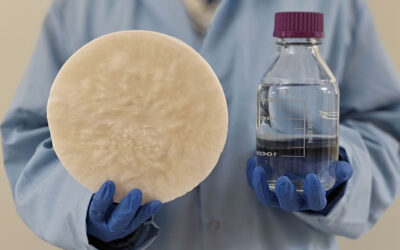Organic π-conjugated polymers exhibit unique optical, electrical and physical properties depending on their specific structure. These materials are being widely investigated for applications such as solar cells and light-emitting diodes.![]()
Synthesizing these polymers with control over the structure (e.g. sequence, length, and molecular weight distribution) remains a significant challenge. Within the past decade, several Ni and Pd catalysts have been reported to mediate living, chain-growth polymerizations for a selected few conjugated monomers. Extending these methods to copolymers and other monomers has been difficult. As a consequence, there is an ongoing search for a more universal catalyst.
Anne McNeil and co-workers from the University of Michigan, USA, now report an N-heterocyclic carbene (NHC)-ligated Pd precatalyst that can mediate a living, chain-growth polymerization for both thiophene and phenylene-based monomers. Furthermore, they demonstrate that this block copolymerization proceeds through a living, chain-growth process, regardless of the order of monomer addition. As a result, copolymers can now be prepared with control over their sequence, length, and molecular weight distribution.
Some time-dependent stability issues were observed with this catalyst. Mechanistic studies are therefore needed to elucidate the precise role of ligand steric and electronic properties, as well as monomer structure, on the chain-growth and competing reaction pathways.
















